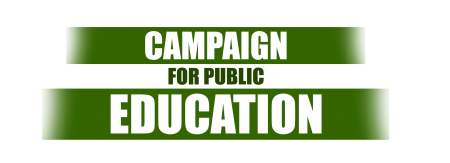Taxes for better education
“An increased willingness among the majority to pay more taxes for education”, says a study on public attitudes toward education in Ontario*
- Public views of Ontario schools have markedly improved since the years of discord in the late 1990s and early years of the 21st century.
Educational Finance
- Support for increased funding of all levels of education remains strong across all demographic groups and is backed up by the willingness of a majority to pay more taxes for education.
Spending and Taxation
- In our 2007 report we suggested that the period since 2000 had been one of high and stable support for spending on public education, as well as an increased willingness among the majority to pay more taxes for education. These views continued to be expressed in 2009.
- The correspondence between support for public education funding and preparedness to pay personal taxes to realize such increases is closer than it has ever been during our [30 years of] surveys.
- Around two-thirds of Ontarians now support increased funding of all levels of public education, specifically for elementary and secondary schools, community colleges, and universities.
• Low confidence ratings persist for schools, and even more so for educational policy. While satisfaction with the school system has risen as funding has been restored, there is still considerable uncertainty about future directions.
- Support for increased funding of all levels of education remains strong across all demographic groups and is backed up by the willingness of a majority to pay more taxes for education.
*The 17th OISE Survey Of Educational Issues Published by the Ontario
Institute for Studies in Education University of Toronto
Authors Doug Hart and D.W. Livingstone Copyright © 2010
http://www.oise.utoronto.ca/oise/UserFiles/File/OISE%20Survey/17th
Press report OISE 16th survey
The majority of Ontarians support increased funding for public schools, and many are prepared to shoulder a higher tax burden, according to a new opinion survey.
The poll, which was developed by researchers at the University of Toronto’s Ontario Institute for Studies in Education, found 73 per cent of respondents supported higher spending on schools; 60 per cent said they were willing to pay more taxes for education.
“There’s still a feeling of constraint, of unmet needs,” said Doug Hart, a co-author of the report, which was released yesterday. “It’s become increasingly clear that there are things that are vital that still need to be done,”
The survey, which has been administered every two years since 1980, found that support for more education dollars and higher taxes has swelled over the past several years
In 1996, fewer than half of those polled favoured increased education spending while 52 per cent were willing to pay more taxes. Mr. Hart attributed the increase to a greater public realization of the effects of education cuts by the Mike Harris government.
“I would wish that governments and people running for election would look at that and feel heartened by it … that people seem to understand that the money that you pay for public education is an investment, it does pay off, it’s not money down the drain,” said Annie Kidder, executive director of People for Education, a parents’ lobby group.
Education has so far dominated the agenda of the provincial campaign for the Oct. 10 election.
Liberal Leader Dalton McGuinty yesterday promised to offer full-day kindergarten programs by 2010 and said his party would boost education funding by $3.1-billion a year by 2011.
The Conservatives have made a similar funding promise, but the Liberals say Leader John Tory’s plan to fund private religious schools would take money out of public education.
In the past, the OISE survey has tracked the public’s appetite for extending government money to private faith-based schools and found support usually ranged between 4 and 7 per cent.
However, the researchers did not pose the same question this year. Instead, they asked whether respondents supported giving public dollars to all private schools (not just religious ones) that meet provincial standards. They found that 39 per cent were in favour and 58 per cent were opposed.
The survey also found:
A growing majority of respondents – 60 per cent – were very or somewhat satisfied with the general school system. Ontarians were also more satisfied with the job teachers are doing.
Thirty-six per cent said they had a lot of confidence in public schools.
Just 13 per cent report being very confident in educational policy.
Sixty-eight per cent said the public has too little say in how schools operate.
Seventy-four per cent favoured province wide testing to assess the performance of high-school students.
The telephone poll of 747 adults was conducted by York University’s Institute for Social Research between January and April. The results are considered accurate to within 4 to 5 percentage points, 95 per cent of the time.
The survey is considered the longest running, regularly administered public opinion survey on education in Canada.
JILL MAHONEY Globe and Mail September 7, 2007 at 4:37 AM EST




